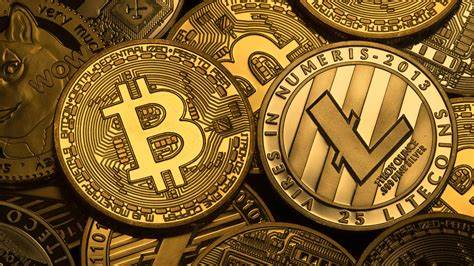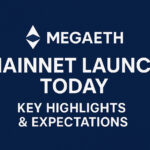In this post, I’ll go over some of the cryptocurrencies that can substitute cash. These digital currencies move faster, are more secure, and cheaper than physical money or cash.
They are transforming daily transactions because they decentralize, provide privacy, utilize smart technology, and more. Which cryptocurrencies can truly transform finance and payment systems?
Key Point & Cryptocurrencies That Could Replace Paper Money List
| Cryptocurrency | Key Point |
|---|---|
| Bitcoin (BTC) | First and most widely recognized cryptocurrency, store of value. |
| Ethereum (ETH) | Leading smart contract platform enabling decentralized apps. |
| Ripple (XRP) | Focused on fast, low-cost cross-border payments for banks. |
| Litecoin (LTC) | Faster transaction confirmation, often called “silver to Bitcoin’s gold.” |
| Monero (XMR) | Privacy-focused cryptocurrency with anonymous transactions. |
| Zcash (ZEC) | Offers optional privacy features using zero-knowledge proofs. |
| Cardano (ADA) | Proof-of-stake blockchain focusing on scalability and sustainability. |
| Solana (SOL) | High-speed blockchain with low transaction fees for dApps. |
| Avalanche (AVAX) | Platform for custom blockchain networks with fast finality. |
| Stellar (XLM) | Designed for fast, affordable cross-border payments for individuals. |
1.Bitcoin (BTC)
Bitcoin (BTC) is a cryptocurrency that has the potential to replace paper money due to its decentralized feature and acceptance around the world. In contrast to government backed currencies, bitcoin benefits from blockchain technology which secures and exposes the currency while allowing for peer-to-peer transactions without middlemen.
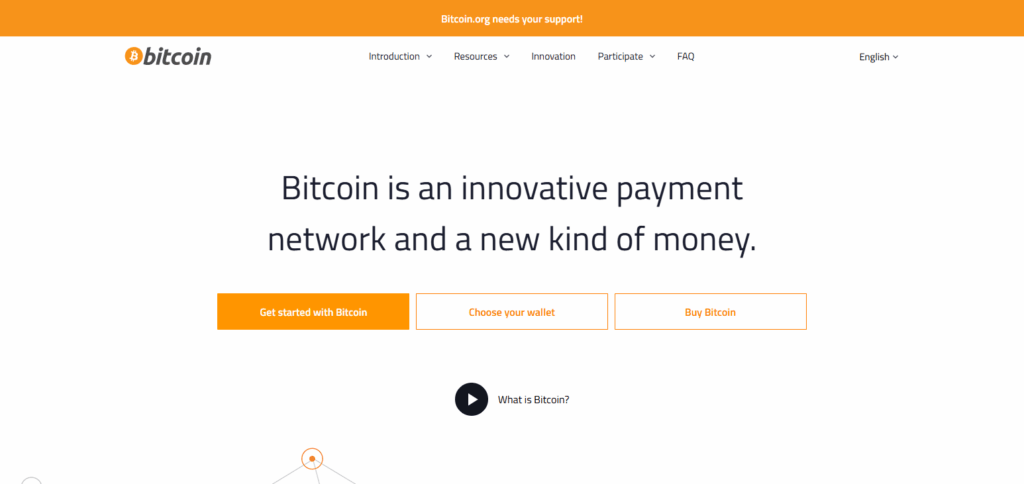
Bitcoin also protects against inflation due to its fixed supply which helps stabilize value. Furthermore, individuals and businesses around te globe are starting to accept bitcoin as it can be used as an alternative for physical cash.
| Feature | Details |
|---|---|
| Name | Bitcoin (BTC) |
| Key Advantage | Decentralized peer-to-peer payments without intermediaries |
| KYC Requirement | Minimal or none on decentralized platforms (e.g., P2P or non-custodial) |
| Use Case | Digital alternative to cash for global transactions |
| Privacy Level | Moderate (public ledger, pseudonymous addresses) |
| Transaction Speed | Moderate (depends on network congestion) |
| Ideal For | Users seeking freedom from traditional banking systems |
2.Ethereum (ETH)
Ethereum (ETH) has the potential to replace paper money because, unlike paper currency, it simplifies transactions with smart contracts and decentralized applications. This self-driving money facilitates Ethereum’s sustainment of sophisticated self-banking systems which makes cash easier to automate and operate.
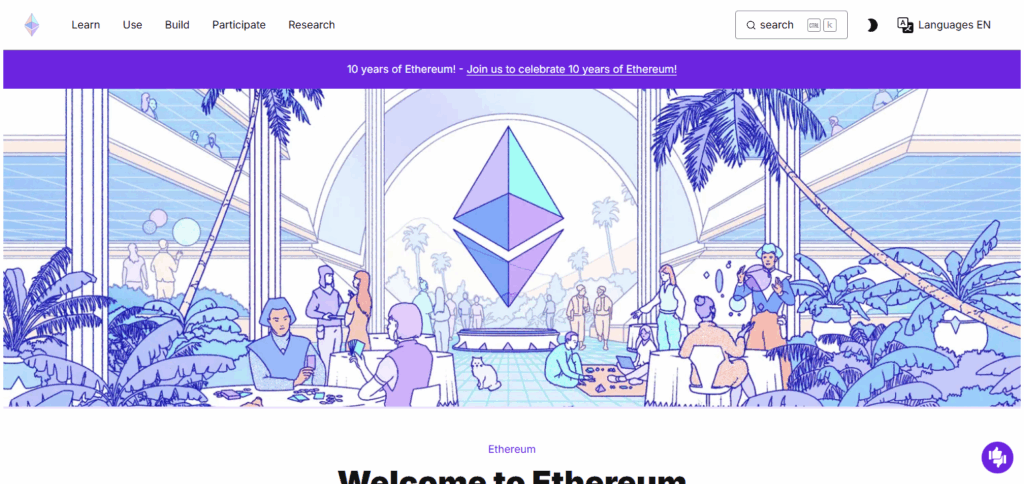
Its expanding ecosystem stimulates innovation within payments, lending, and other financial instruments providing users greater autonomy over their finances. The integration of currency and technology places Ethereum ahead of fiat currencies as a substitute for cash.
| Feature | Details |
|---|---|
| Name | Ethereum (ETH) |
| Key Advantage | Supports programmable payments through smart contracts |
| KYC Requirement | Minimal or none via decentralized wallets and DeFi platforms |
| Use Case | Everyday digital payments and decentralized finance |
| Privacy Level | Moderate (transparent blockchain, pseudonymous usage) |
| Transaction Speed | Moderate to high (with scaling solutions like Layer 2) |
| Ideal For | Users wanting flexible, contract-based digital currency alternatives |
3.Ripple (XRP)
Ripple (XRP) aims to transform cross-border payments into state-of-the-art, postage-like services that are effortless and inexpensive, overcoming one of the challenges associated with traditional fiat currencies.
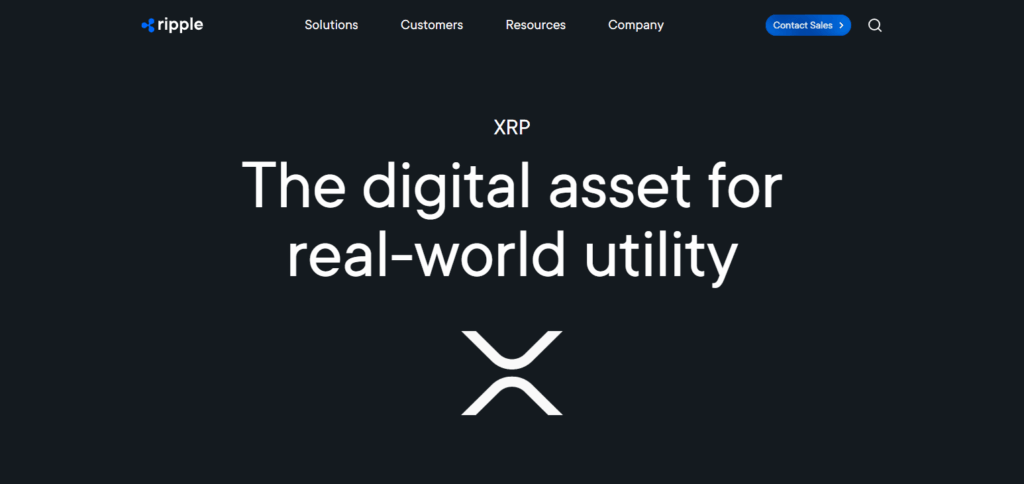
Unlike most cryptocurrencies, XRP envisions cooperation with banks and other financial entities in order to facilitate international remittances at a lower cost and faster speed than previously thought possible.
Its capacity of instantaneous payment settlements makes it handy for day-to-day use and positions it as a digital currency substitute for real-world transactions that would replace dated systems reliant on slow paper currency.
| Feature | Details |
|---|---|
| Name | Ripple (XRP) |
| Key Advantage | Ultra-fast and low-cost cross-border transactions |
| KYC Requirement | Minimal on decentralized exchanges or non-custodial wallets |
| Use Case | Digital payments, especially for global remittances |
| Privacy Level | Low to moderate (transaction data visible but not directly tied to identity) |
| Transaction Speed | High (typically 3–5 seconds) |
| Ideal For | Individuals seeking fast, affordable currency transfers without banks |
4.Litecoin (LTC)
Litecoin (LTC) is a better alternative to paper money because its transaction speeds are much faster than even Bitcoin and its fees are significantly lower than traditional currencies. As designed for daily transactions, Litecoin helps make payments simple and fast, making it useful for convenience purchases.
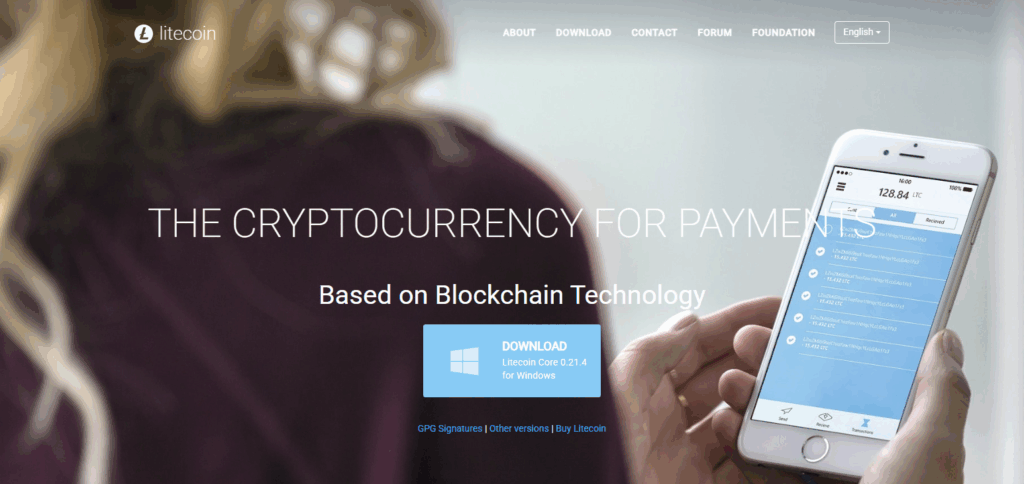
Its strong emphasis on ease of access increases the likelihood of its adoption which helps make digital currency more commonplace like cash. Because of this efficiency and practicality, Litecoin has the potential of being used as a digital substitute to paper currency.
| Feature | Details |
|---|---|
| Name | Litecoin (LTC) |
| Key Advantage | Fast, low-cost transactions ideal for daily spending |
| KYC Requirement | Minimal when used with non-custodial wallets or decentralized platforms |
| Use Case | Everyday payments and peer-to-peer transfers |
| Privacy Level | Moderate (transparent ledger with pseudonymous addresses) |
| Transaction Speed | Faster than Bitcoin (average ~2.5 minutes) |
| Ideal For | Users seeking quick, cash-like digital payments without strict ID checks |
5.Monero (XMR)
Monero (XMR) is distinguished as a cryptocurrency that aims to substitute paper money due to its focus on privacy and security in every transaction. Unlike cash, which can sometimes be traced in many digital forms, Monero uses advanced cryptography to keep the details of transactions completely anonymous.
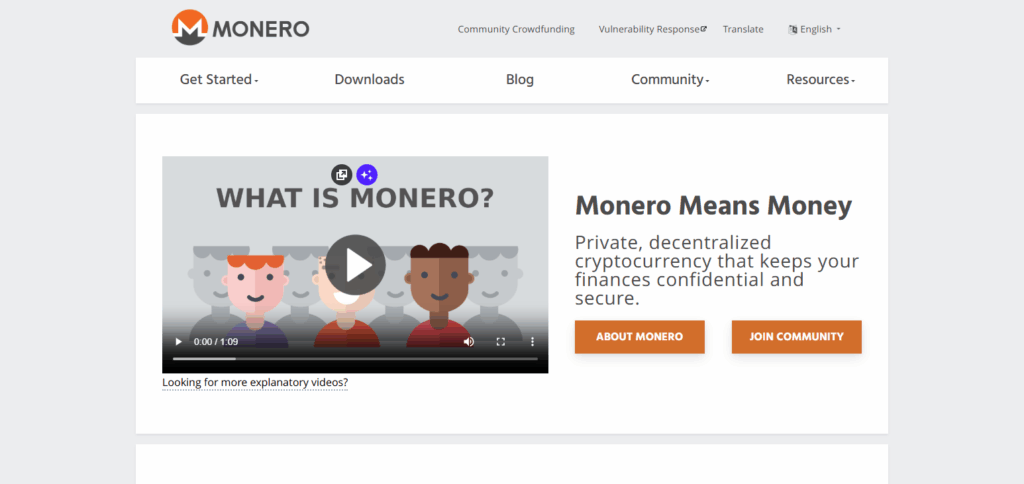
This degree of anonymity is appealing to users who wish to make payments without being watched. By blending technological ease with cash-like confidentiality, it is possible to argue that Monero serves as an advanced alternative to paper money while defending financial freedom and personal information.
| Feature | Details |
|---|---|
| Name | Monero (XMR) |
| Key Advantage | Strong privacy and completely anonymous transactions |
| KYC Requirement | Minimal or none via private wallets and privacy-focused platforms |
| Use Case | Private digital payments without third-party oversight |
| Privacy Level | High (sender, receiver, and amount are all hidden) |
| Transaction Speed | Moderate (about 2 minutes per block) |
| Ideal For | Users prioritizing financial privacy and cash-like anonymity |
6.Zcash (ZEC)
Zcash (ZEC) can potentially replace paper currency due to its ability to offer both transparent and fully private transactions. Zcash’s cutting-edge zero-knowledge proof technology guarantees that payment information can be concealed yet verified securely.
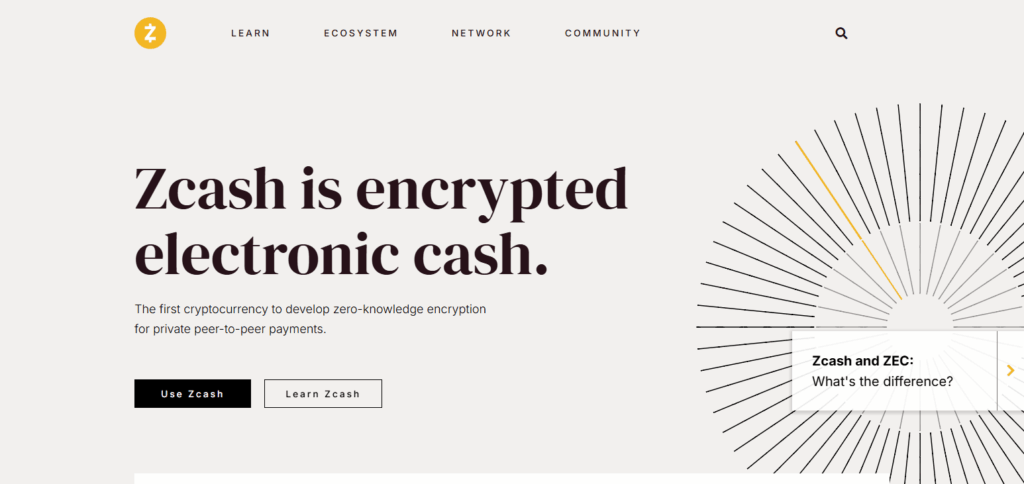
This enables Zcash to operate like cash, where privacy is optional but safeguarded, providing the advantages of a digital currency. Zcash blends confidentiality with blockchain security, offering an efficient substitute for conventional money that honors user privacy and trust.
| Feature | Details |
|---|---|
| Name | Zcash (ZEC) |
| Key Advantage | Optional privacy with shielded transactions using zero-knowledge proofs |
| KYC Requirement | Minimal on non-custodial and decentralized platforms |
| Use Case | Secure and private digital payments |
| Privacy Level | High (with shielded addresses, full transaction privacy) |
| Transaction Speed | Moderate (block time ~75 seconds) |
| Ideal For | Users seeking flexible privacy options similar to cash |
7.Cardano (ADA)
Cardano (ADA) is positioned well to replace traditional banknotes because of its emphasis on sustainability and security, as well as its scalability through a one-of-a-kind proof-of-stake system. Its development is scientific in nature which builds confidence in the network’s energy efficiency and capacity to support high volumes of cross-border transactions at low costs.
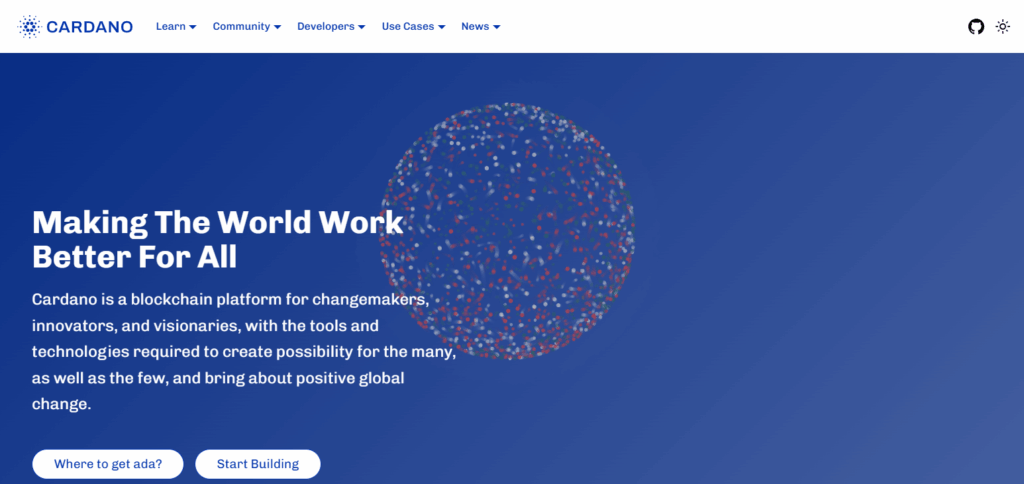
Cardano aims to create a spin-off decentralized finance ecosystem which comes along with smart contracts assisting numerous real-life use cases, therefore making it a flexible crypto asset alternative which could integrate easily between fiat currencies and blockchain technology.
| Feature | Details |
|---|---|
| Name | Cardano (ADA) |
| Key Advantage | Energy-efficient, scalable transactions with a research-based approach |
| KYC Requirement | Minimal via decentralized wallets and DeFi platforms |
| Use Case | Everyday payments and smart contract-based financial services |
| Privacy Level | Moderate (public ledger, pseudonymous addresses) |
| Transaction Speed | Moderate to high (depending on network usage) |
| Ideal For | Users seeking a sustainable, decentralized alternative to cash |
8.Solana (SOL)
Due to its extremely fast transactions and low fees, Solana (SOL) cryptocurrency is positioned as a potential replacement for paper money. Its unique form of consensus enables the processing of thousands of transactions per second which makes every day payments cheap and quick.

Convenience at this level fosters mass acceptance deploying Solana for actual financial operations without the hurdles or expenses associated with conventional cash systems. In its consistent combination of expeditiousness, ease-of-use and safety Solana stands as a contemporary substitute to paper money.
| Feature | Details |
|---|---|
| Name | Solana (SOL) |
| Key Advantage | High-speed, low-cost transactions ideal for real-time payments |
| KYC Requirement | Minimal on decentralized apps and non-custodial wallets |
| Use Case | Instant payments, micropayments, and DeFi transactions |
| Privacy Level | Moderate (transparent ledger with pseudonymous identities) |
| Transaction Speed | Very high (65,000+ transactions per second capability) |
| Ideal For | Users needing fast, scalable digital payments without banking barriers |
9.Avalanche (AVAX)
Avalanche (AVAX) has the potential to offer an efficient alternative to traditional paper money through a highly scalable and interoperable platform enabling fast and low-cost transactions across multiple blockchains. Its singular consensus protocol guarantees rapid finality which ensures fast and reliable payments.
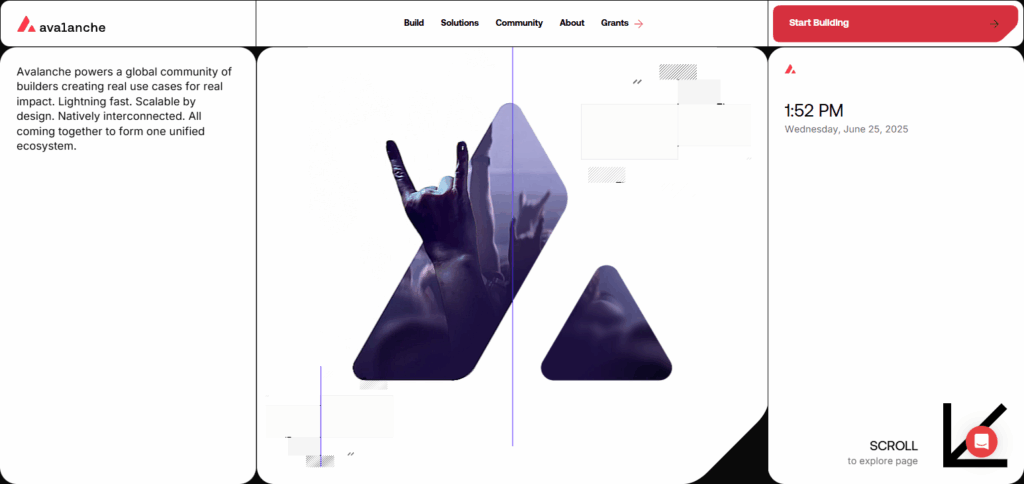
The customizable blockchain networks created by Avalanche provides systematic financial solutions, greatly improving usability for daily money transfers. This kind of speed combined with flexibility gives Avalanche the opportunity to serve as a digital currency replacement in various situations that require withdrawal or exchange of cash.
| Feature | Details |
|---|---|
| Name | Avalanche (AVAX) |
| Key Advantage | High throughput and customizable blockchains for fast, flexible payments |
| KYC Requirement | Minimal when using decentralized platforms and wallets |
| Use Case | Real-time payments, DeFi, and interoperable financial services |
| Privacy Level | Moderate (transparent ledger, pseudonymous addresses) |
| Transaction Speed | Very high (sub-second finality) |
| Ideal For | Users seeking fast, flexible digital transactions without identity checks |
10.Stellar (XLM)
Stellar (XLM) aims to eliminate physical cash by facilitating quick and low-cost international payments, especially for those without bank accounts. It connects banks, payment networks, and people allowing simple and cheap transfers of money all over the world.
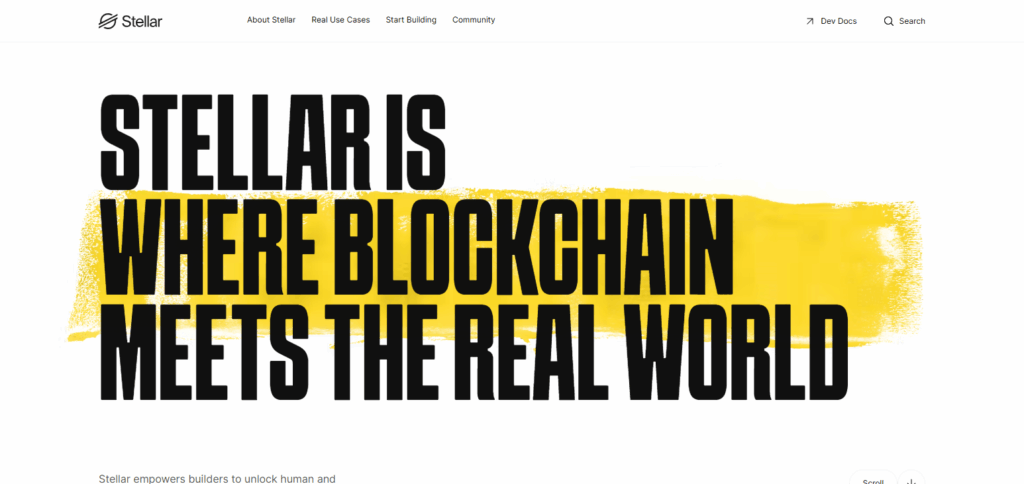
Stellar is focused on financial inclusion which makes it ideal for day-to-day transactions in both developed and developing countries. Stellar embodies a true hybrid between traditional finance and digital currency, thus providing a useful substitute for cash that enhances access to finance worldwide.
| Feature | Details |
|---|---|
| Name | Stellar (XLM) |
| Key Advantage | Fast, low-cost cross-border payments for individuals and institutions |
| KYC Requirement | Minimal via decentralized wallets and some P2P platforms |
| Use Case | Everyday payments and international remittances |
| Privacy Level | Moderate (public ledger, pseudonymous transactions) |
| Transaction Speed | High (transactions settle in 2–5 seconds) |
| Ideal For | Users needing quick, affordable digital cash alternatives globally |
Conclusion
Better than paper money, cryptocurrency offers faster transactions, more security, and easier access. Digital forms of currency do more than just speed up transactions; they also offer decentralization, privacy, low fees, the ability to create smart contracts and much more. With all these features, cryptocurrencies can redefine our monetary system for good.
As technology develops and people become more willing to adopt them, cryptocurrencies stand a chance to become widely accepted as they would build a financial system that is more efficient, inclusive and transparent.


